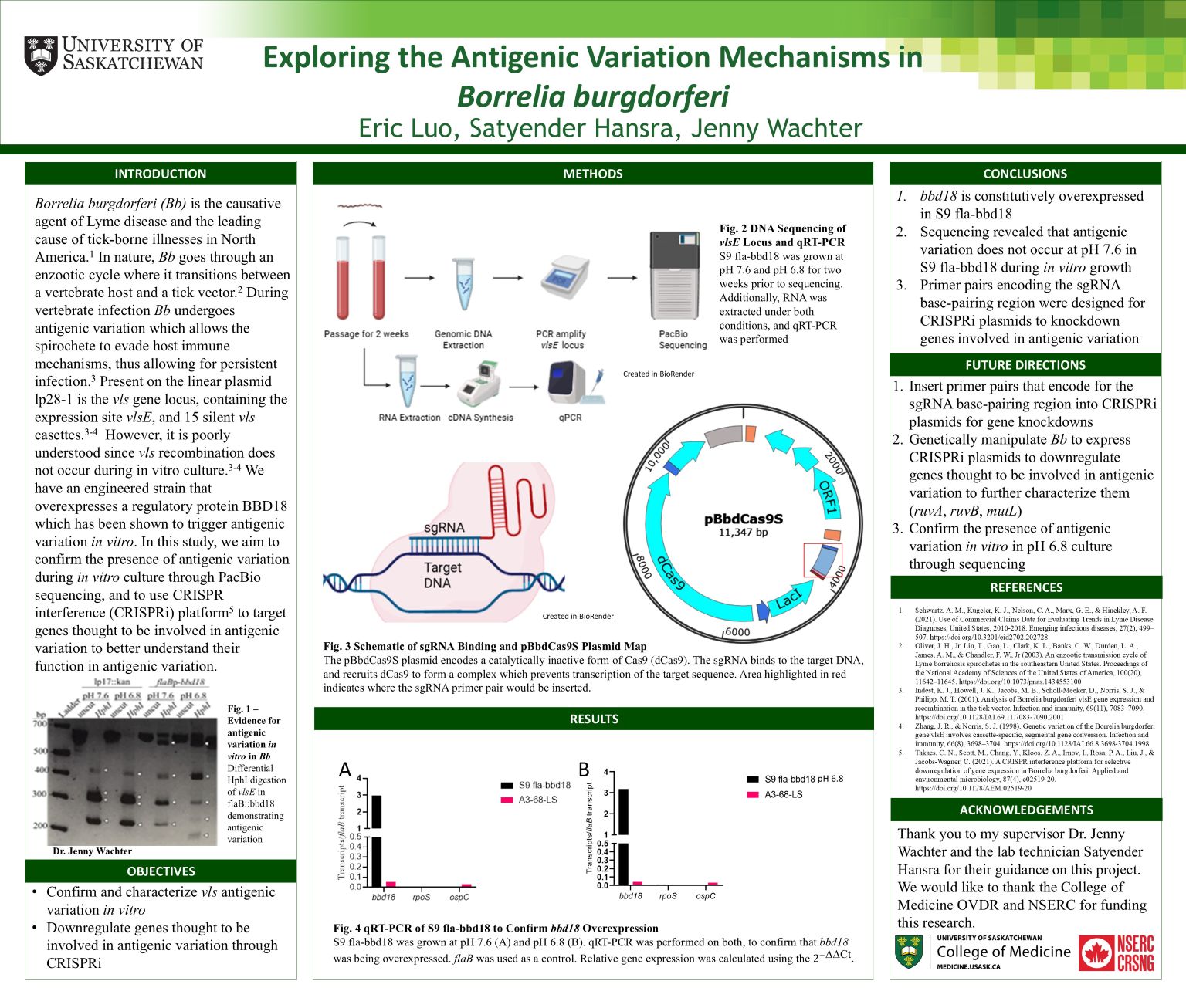
Exploring the antigenic variation mechanisms in Borrelia burgdorferi
Eric Luo
Borrelia burgdorferi (Bb), the causative agent of Lyme disease, is the most common tick-borne pathogen in North America. Bb undergoes antigenic variation, allowing the spirochete to evade host immune responses and establish persistent infection. This process is mediated at the vls locus on plasmid lp28-1, where the expression site vlsE can recombine with 15 different silent cassettes. Antigenic variation does not normally occur during in vitro growth. However, an engineered Bb strain (S9 fla-bbd18) that constitutively overexpresses the regulatory protein BBD18, has been shown to undergo vls recombination in vitro in mildly acidic conditions (pH 6.8) in previous work. Using qRT-PCR, we confirmed the overexpression of BBD18. Using PacBio sequencing, we aim to characterize and confirm the presence of antigenic variation in this strain. Additionally, we designed plasmids for CRISPR interference to downregulate genes thought to be involved in antigenic variation. Our findings suggest that antigenic variation in vitro is absent at pH 7.6 in this strain, but future work will assess growth under mildly acidic conditions to confirm and characterize the presence of antigenic variation under these conditions. Additionally, future work will assess the roles of ruvA, ruvB, and mutL on antigenic variation.
